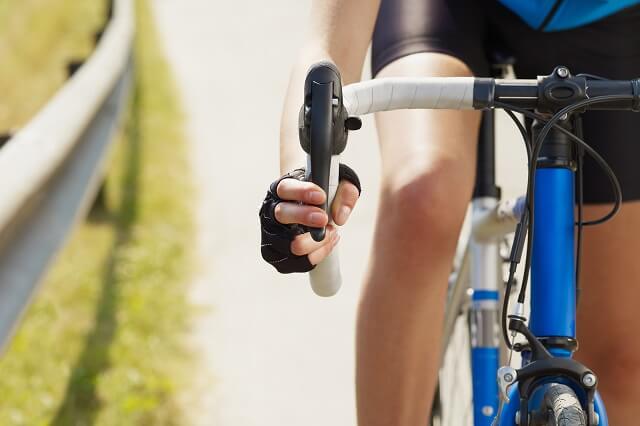
What should I do after a bicycle accident? Given that vehicles far outnumber bicyclists in Washington, getting into an accident is far too common. Bicycle riders are more prone to severe and catastrophic injuries due to the lack of safety protection riders have compared to vehicle occupants. Understanding what to do after a bicycle accident is essential as it can impact your ability to settle for the maximum amount.
Contact our Washington bicycle accident lawyers if you are wondering how to recover compensation for a bicycle accident. Brett McCandlis Brown & Conner can help you hold the responsible party accountable for your injuries.
What to Do After a Bicycle Accident vs. Car
When you’re involved in an accident with a vehicle, your actions immediately following the accident play an integral role in a liability investigation. Watch what you say at the scene. Otherwise, even something innocuous might be used against you by the driver’s insurance company. Read on to learn crucial steps to take after a bicycle accident.
Contact the Police
Someone should contact the police at the scene of the accident. You need the police to respond and take a report, documenting the damage and hopefully assessing fault against the driver. Do not leave the scene without calling the police. If the driver tries to flee the scene after the accident, they could face charges for a hit-and-run.
Do not agree to settle the matter at the scene without reporting the accident to the driver’s insurance company. The driver might offer a nominal amount of money at the scene rather than report the accident. Do not be tempted. The driver might call the police and pretend you fled the scene after the accident. Or, it’s more likely that you will find out your injuries are worth far more than the money the driver gave you.
Exchange Contact Information
Exchange contact information with all involved parties, including witnesses. Do not wait for the police to arrive to get the witnesses’ contact information. It might be necessary for the witness to leave the accident scene before the police arrive.
The driver might hesitate to turn over their insurance information. If this happens, let the police know. The police will ask the driver for their policy information and document it in the police report.
Take Photos of the Scene
Get pictures of the damage and surrounding scene if you can safely do so. While photos from the location of the accident can be essential pieces of evidence, you should never put yourself at risk to take them.
Get photos of the damage to the vehicle and your bicycle, any debris left on the street, and skid marks. Take note of anything that could be important to your claim, such as an illegally parked vehicle or vegetation that blocked the view of a stop sign. Photos of the vehicle could be important when tracking down all parties who should be responsible for your injuries.
Seek Immediate Medical Attention
If emergency responders do not transport you to the hospital, seeking treatment right after the accident is crucial. For one, you could have internal injuries you aren’t aware of because they aren’t visible to the naked eye.
Another reason it’s important to get seen by a doctor is that the insurance company for the defendant will use it against you if you don’t. The adjuster will argue that your injuries weren’t that serious if you waited a week or two to seek medical treatment. Do not give the defendants any ammunition to lower the potential settlement value of your claim.
File a Claim with the Driver’s Insurance Company
You must file a claim with the driver’s insurance company. Don’t assume the driver will report it on their own. Many times, the defendant’s vehicle has no damage, so they figure that by not reporting it, no one will ever know.
Be very cautious in your communications with the insurance company. The adjuster is looking for anything they can use against you in the liability investigation. Do not agree to give a recorded statement or sign any legal documents without first speaking with a Washington bicycle accident lawyer.
Document Your Injuries
Document your injuries and healing journey. Take notes and photos that show the various treatments and how they affected you. Consider creating a pain journal where you can write down how the accident has affected your life. This information is essential because you may need to look back at your notes months or even years later if the case is in litigation.
Speak with a Skilled Washington Bicycle Accident Lawyer
One of the critical steps after a bicycle accident is to meet with a Washington bicycle accident lawyer—the sooner, the better. The defendant’s insurance adjuster will try to talk you out of hiring a lawyer and suggest it’s too early.
Insurance adjusters do not want claimants to have legal representation because getting a lawyer means that the adjuster cannot speak to you directly. When you are unrepresented, the insurance company can try to convince you to give a recorded statement, hoping you say something they can use against you. That is why we recommend having a legal advocate on your side before agreeing to consider giving a statement.
Your attorney will not only handle communication with the insurance company, but they will also negotiate a potential settlement. If the driver’s adjuster is unwilling to settle your claim, it might be necessary to file a lawsuit. Filing a lawsuit within the statute of limitations is crucial. Should you miss this legal deadline, the court might dismiss your case, and you won’t receive any money.
Contact Brett McCandlis Brown & Conner
Knowing what to do after a bicycle accident is essential. When you’ve been injured in a bicycle accident, our skilled legal team can help. We have achieved exceptional results for all types of accident victims over the years, and we are anxious to put our experience to work for you. Contact our office to schedule an initial consultation. Let us review your case and help you fight for the compensation you deserve.


